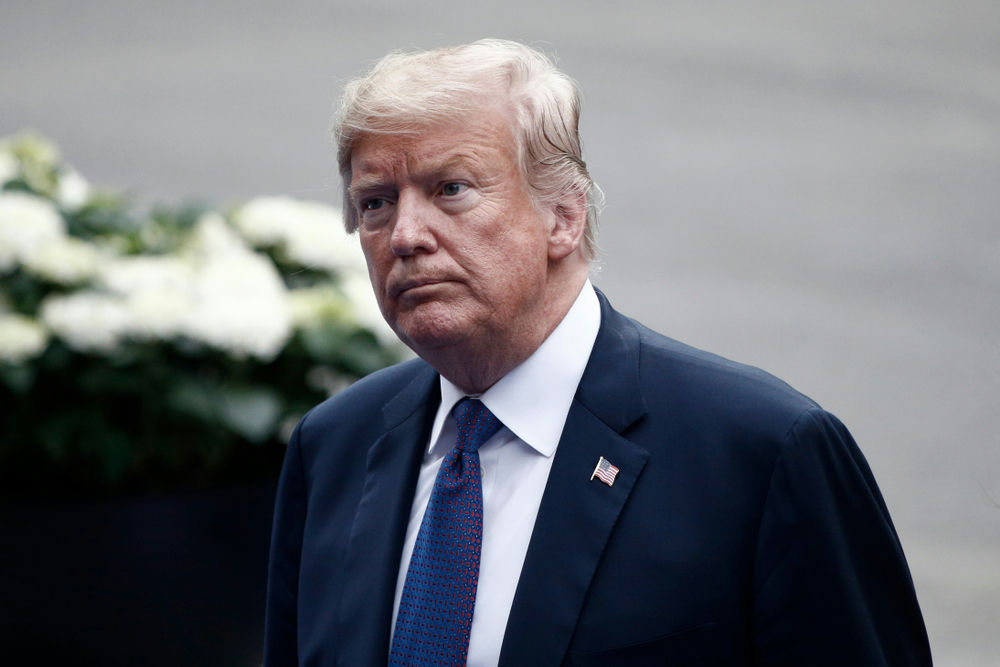The Trump administration takes a bold step by suing New York City, challenging its sanctuary city status and stirring national debate over immigration enforcement.
Trump Administration Challenges NYC Sanctuary Policies
The Trump administration has launched a high-profile legal battle against New York City, targeting its longstanding sanctuary city policies. These policies, rooted in measures dating back to 1989, limit cooperation between local law enforcement and federal immigration authorities. The administration argues that these policies unlawfully obstruct federal immigration enforcement and violate the U.S. Constitution’s Supremacy Clause. This lawsuit marks a significant escalation in the administration’s ongoing campaign to enforce federal immigration laws across the nation.
The lawsuit was filed in Brooklyn federal court on July 24, 2025, naming Mayor Eric Adams, the NYC Council, and city agencies as defendants. The Department of Justice seeks a permanent injunction to block the enforcement of NYC’s sanctuary laws. The lawsuit follows a recent incident where an off-duty Customs and Border Protection agent was shot by an undocumented immigrant in Manhattan, which federal officials linked to the city’s sanctuary policies. This tragic event has fueled the administration’s argument that sanctuary policies endanger public safety.
Stakeholders and Their Motivations
The primary stakeholders in this legal battle include the Trump administration, led by President Donald Trump and Attorney General Pam Bondi, who are determined to enforce federal immigration laws uniformly. They argue that sanctuary policies undermine federal authority and pose a public safety risk. On the other side, NYC officials, including Mayor Eric Adams and Police Commissioner Jessica Tisch, defend these policies as essential for community trust and protecting immigrant rights. The lawsuit has intensified the adversarial relationship between the federal government and Democratic city and state governments.
Federal agencies such as Immigration and Customs Enforcement (ICE) and Customs and Border Protection (CBP) support the lawsuit, claiming that the lack of cooperation from sanctuary cities increases risks to officers and public safety. Meanwhile, some state officials, like New York Governor Kathy Hochul, criticize the federal government’s actions, citing state and local autonomy. The legal battle will ultimately be decided in federal courts, but public opinion and advocacy groups will heavily influence the broader debate.
Implications and Potential Outcomes
The lawsuit has significant short-term and long-term implications. In the short term, it increases legal and political pressure on NYC and other sanctuary jurisdictions while heightening public debate over immigration enforcement and local-federal relations. Immigrant communities may experience a chilling effect, reducing their willingness to interact with local authorities. In the long term, if the federal government prevails, cities nationwide may be forced to alter or abandon sanctuary policies, reshaping the local-federal dynamics on immigration.
A ruling in favor of NYC could reinforce local autonomy and embolden other cities to maintain or expand sanctuary protections. The outcome could set a major precedent for the balance of power between federal and local governments on immigration enforcement. The case is closely watched by cities, states, advocacy groups, and legal experts nationwide, as it could have far-reaching implications for the future of sanctuary policies.
Expert Perspectives and Analysis
Legal scholars highlight the complexity of the lawsuit, pointing out that while the Supremacy Clause grants the federal government broad authority over immigration, the Tenth Amendment limits federal power to compel local action. Some experts argue that sanctuary policies are constitutionally protected as an exercise of local discretion, while others contend they unlawfully obstruct federal law. Immigration law professors note that courts have sometimes ruled that honoring federal immigration detainer requests without a judicial warrant can violate constitutional rights.
Law enforcement experts are divided on the issue. Some argue that sanctuary policies hinder public safety, while others believe they foster trust and cooperation in immigrant communities. Advocacy groups for immigrants staunchly defend sanctuary policies as essential for civil rights and public safety, while opponents, including some federal officials and law enforcement unions, argue that such policies endanger the public and undermine the rule of law.

